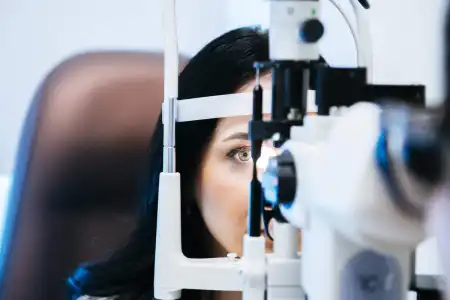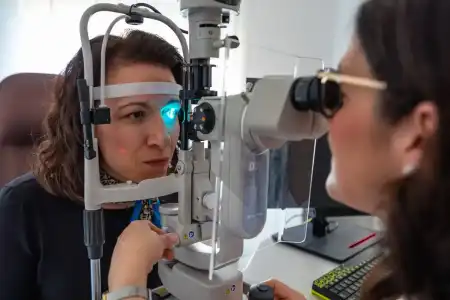In this article, we explore how hormonal changes during pregnancy can impact eye health, discuss common vision-related occurrences, and offer strategies for managing these changes. We provide practical advice for expectant mothers experiencing vision changes, aiming to help them maintain eye health and effectively manage these changes during this critical life stage.
Pregnancy brings numerous changes to a woman's body, one of the lesser-known being vision changes that can occur during this period. Hormonal changes can affect various aspects of health, including eye health. Therefore, it is important to understand which vision symptoms to expect and how to properly manage these changes.
In this article, we explore how pregnancy can affect vision, the most common vision-related occurrences during pregnancy, and how best to care for your eyes during this important life stage. We will provide useful tips and recommendations for pregnant women experiencing vision changes, aiming to preserve eye health and ensure the best possible care.
Vision Changes Pregnant Women May Experience
During pregnancy, many women may notice certain changes in their vision. These changes are often temporary and are the result of hormonal fluctuations that affect various bodily systems. Here are a few common vision changes that pregnant women may experience:
- Increased dryness of the eyes: Many pregnant women notice that their eyes are drier than usual, which can cause irritation and discomfort. This condition can be alleviated by using artificial tears to help moisturize the eyes.
- Changes in refraction: During pregnancy, changes in hormone levels can lead to changes in vision strength. Some people may notice that their prescription has worsened or improved. These changes are usually temporary and vision often returns to normal after childbirth.
- Sensitivity to light: Increased sensitivity to light is another common symptom. Wearing sunglasses with UV protection can help reduce discomfort.
- Occasional visual disturbances: Some people may experience flashes of light, blurred vision, or double vision. Although these changes are usually harmless, it is important to discuss them with your doctor to rule out more serious complications.
It is important to note that while most of these changes are temporary, any significant changes in vision during pregnancy should be taken seriously. Regular consultation with your ophthalmologist or healthcare provider is crucial for maintaining eye health during pregnancy.
How to Manage Vision Changes During Pregnancy
Managing vision changes during pregnancy requires attention and proper care to ensure that both mother and baby remain healthy. It is important to maintain regular check-ups with an ophthalmologist, especially if you notice any changes in vision.
These visits can help monitor changes and adjust necessary treatments. Additionally, wearing sunglasses with appropriate UV protection can reduce sensitivity to light and protect the eyes from harmful UV rays.
For alleviating dry eyes, artificial tears can be very useful. It is important to choose products that are safe for use during pregnancy, ideally after consulting with a doctor. Additionally, adjusting the environment, such as improving lighting at home or at work, can also help reduce eye strain.
With the right approach and preventive measures, most pregnant women can effectively manage vision changes and maintain good eye health during this special period in their lives.
When to Seek Professional Help: Symptoms That Require Urgent Ophthalmological Examination
During pregnancy, most changes in vision are mild and temporary. However, some symptoms may indicate more serious problems that require quick medical intervention. Understanding when to seek professional help is crucial for protecting your vision and overall health. Here are a few symptoms to pay special attention to:
Sudden changes in vision: If you notice sudden changes in vision, such as significant blurring, the appearance of flashes of light, or black spots (floaters), it is important to immediately consult a doctor. These symptoms can be signs of retinal detachment or other serious eye conditions.
Persistent or intense headaches: Headaches that accompany visual symptoms or those that do not subside with usual treatment may indicate elevated blood pressure or preeclampsia, a condition that can endanger both mother and baby.
Increased sensitivity to light and eye pain: If you experience pronounced sensitivity to light or pain in the eyes that does not pass, this may be a sign of an infection or inflammation that requires treatment.
It can happen that pregnant women experience sudden and intense changes in vision that turn out to be symptoms of preeclampsia. In such cases, only quick intervention and treatment can prevent potentially serious complications, once again showing how important it is to promptly respond to warning symptoms.
It is important to listen to your body and not hesitate to seek help if you experience any of the mentioned symptoms. Regular communication with your doctor and ophthalmologist ensures the best possible care for you and your unborn child during pregnancy.
Adjustments and Preventive Measures for Preserving Vision During Pregnancy
During pregnancy, it is important to make certain adjustments to preserve eye health and minimize vision problems. Implementing preventive measures can help reduce discomfort and prevent more serious issues. Here are a few useful tips:
- Maintain a balanced diet rich in vitamins and minerals: Nutrients such as vitamins A, C, E, and omega-3 fatty acids play a key role in maintaining eye health. Including foods rich in these nutrients can help support eye health.
- Hydration: Adequate hydration is important for maintaining tear volume and preventing dry eyes. Drinking enough water throughout the day is crucial for eye health.
- Rest your eyes: If you spend a lot of time reading or using screens, it is important to frequently rest your eyes. The 20-20-20 rule, where every 20 minutes you look at something at least 20 feet away for at least 20 seconds, can help reduce eye strain.
- Use appropriate lighting: Exposing your eyes to overly bright light can increase eye fatigue. Use diffuse, soft light that does not create glare on screens or book pages.
Conclusion
Vision changes are one of many aspects of pregnancy that can affect quality of life. By recognizing early symptoms and taking appropriate measures, pregnant women can effectively manage these changes. It is important to regularly communicate with your doctor and ophthalmologist about any changes you experience, to ensure proper care and preventive measures. With a timely and proactive approach, it is possible to maintain good eye health during pregnancy, ensuring not only your health but also the health of your unborn child.






